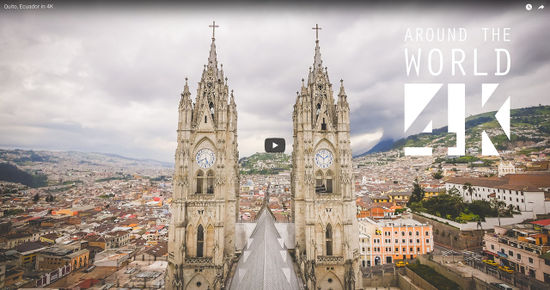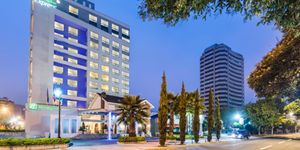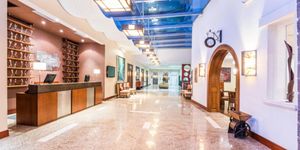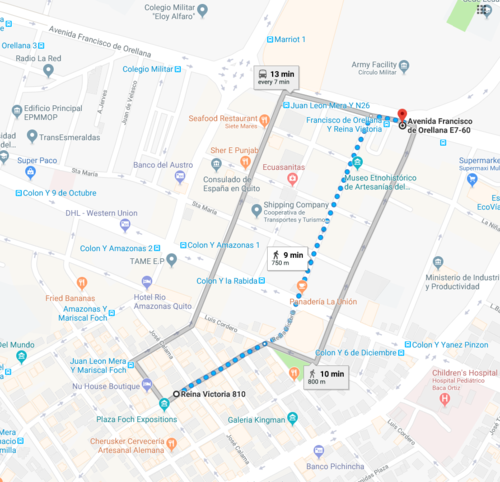Visa for the CTTC 2019
<<< CTTC 2019 workshop main page
About Quito
Click on the picture to watch the video
Isolated in the Andes at 2,818 m. altitude, the city of Quito is spread along the slopes of the Pichincha Volcano and is bordered by the hills of Panecillo and Ichimbia. Founded by the Spanish in 1534, on the ruins of an Inca city, Quito proudly possesses one of the most extensive and best-preserved historic centres of Spanish America. The city offers a remarkable example of the Baroque school of Quito (Escuela Quitena), that brings together the indigenous and European artistic traditions and which is renowned for providing the greatest contribution of Spanish America to universal art. The height of this art is represented by veritable spiritual citadels, among which are San Francisco, San Domingo, San Augustin, La Compana, La Merced, the Sanctuary of Guapulco and the Recoleta of San Diego, to name just the principal ones. These are recognized not only for their artistic value from the architectural viewpoint but also for their decorative elements (altarpieces, paintings, sculptures).
Visa for Ecuador
Citizens of most of the countries do not require a valid VISA to visit Ecuador if they plan to stay for a period of less than 30 days. However, the Organizing Committee of the CTTC-2019 can provide any documentation needed for any eventual VISA application.
Vaccinations for Ecuador
Quito is located at an approximated altitude of 2800 m above the sea level; consequently, risks of being infected with tropical desases/fevers though a mosquito bite are minimal. However, CTTC-2019 participants are suggested to obtain the following vaccines prior their trip to Ecuador: typhoid, hepatitis A, hepatitis B, yellow fever, rabies, and influenza.
Once in Quito Practical Information
Holiday Inn Express Quito Hotel
La Mariscal Zone
Attendants that will stay at the Holiday Inn Express Quito Hotel (Av. Francisco de Orellana E7-60) are recommended to visit during the nights the zone called La Mariscal where number of good restaurant are located around La Plaza Foch (10 mins. walking from the hotel, see map above). A list of restaurants can be reviewed in the following link: [RESTAURANTS]
Tips for staying safe in Quito
- Avoid public transportation: it gets packed, and by that token makes it easy for pickpockets to rob you without you even noticing. They are very good at it and even locals get robbed. Pickpocketing often occurs at the end of the month, when people are out of money. It is usually more than one person that is a part of it and they often work together to trick and confuse you.
- Theft in general: be careful with speaking on the phone in the street, as thieves can snatch your phone even if you hold it tight. It is better to go into a shop or restaurant if you need to use your phone. The same can be said for showing other expensive possessions like cameras or money. Big shopping centres are quite safe and you don’t have to worry much.
- Avoid certain places after dark: be aware of walking around after dark. That doesn’t mean you have to stay inside all the time, but be aware of how to get to places without walking after dark. Old Town can be quite unsafe after dark. Safe places you can walk after dark are La Ronda, República de El Salvador, and Plaza Foch.
- Taxi scams: it is common for yellow taxis to skip using the meter while driving tourists around. They are required to use the meter and if they refuse when you ask you should avoid taking that taxi. There have been occasions of sexual assault in yellow taxis. Therefore, it is important to take the official ones with a green sticker on the side and always sit at the back. Phone numbers of official taxi companies can be asked at the hotel receptions as well as in restaurants. Never allow any strangers to join your taxi. There is also a red panic button in taxis if you feel unsafe. A safer option is to use Uber and Cabify.
Electric Voltage and Outputs




